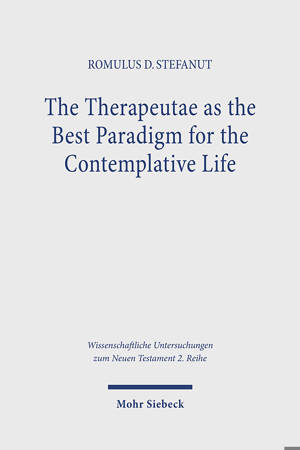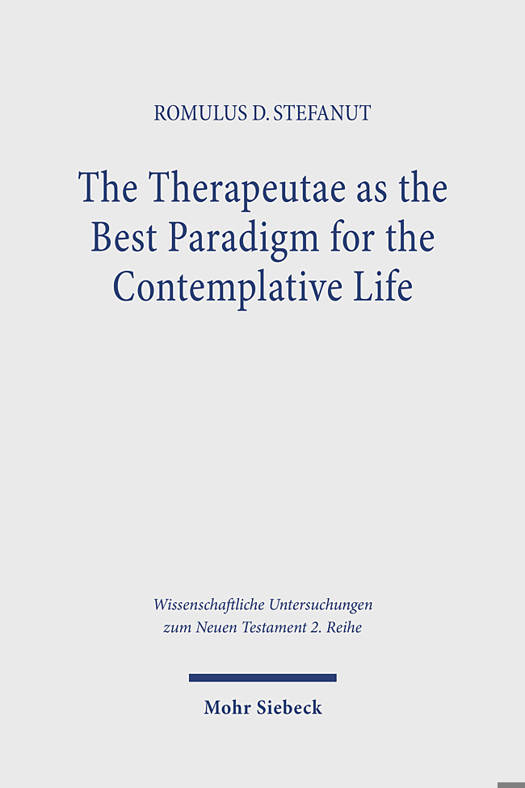
- Afhalen na 1 uur in een winkel met voorraad
- Gratis thuislevering in België vanaf € 30
- Ruim aanbod met 7 miljoen producten
- Afhalen na 1 uur in een winkel met voorraad
- Gratis thuislevering in België vanaf € 30
- Ruim aanbod met 7 miljoen producten
Zoeken
The Therapeutae as the Best Paradigm for the Contemplative Life
Romulus D Stefanut
€ 84,45
+ 168 punten
Omschrijving
In this study, Romulus D. Stefanut offers a contextual reading of Philo's De vita contemplativa, exploring its background, genre, composition, and function beyond the so-called "apologetic and historical works" of Philo. Often, scholars have lost the hermeneutical focus of the treatise itself and have concentrated their attention solely on the historical existence of the Mareotic community described in the treatise, advancing arguments related to its historicity or lack thereof. The author therefore suggests that the purpose of De vita contemplativa is meant to offer the best Jewish Alexandrine expression of a way of life, well-known from ancient Greek philosophy as the theoretical or contemplative life. It is composed in relation rather than opposition to the lost first half of the treatise, dedicated to the practical life of the Essenes. Simultaneously, there might be a friendly polemic between Philo's description of the Therapeutae versus the Essenes.
Specificaties
Betrokkenen
- Auteur(s):
- Uitgeverij:
Inhoud
- Aantal bladzijden:
- 240
- Taal:
- Engels
- Reeks:
Eigenschappen
- Productcode (EAN):
- 9783161570483
- Verschijningsdatum:
- 1/06/2025
- Uitvoering:
- Paperback
- Formaat:
- Trade paperback (VS)
- Afmetingen:
- 213 mm x 150 mm
- Gewicht:
- 489 g

Alleen bij Standaard Boekhandel
+ 168 punten op je klantenkaart van Standaard Boekhandel
Beoordelingen
We publiceren alleen reviews die voldoen aan de voorwaarden voor reviews. Bekijk onze voorwaarden voor reviews.











